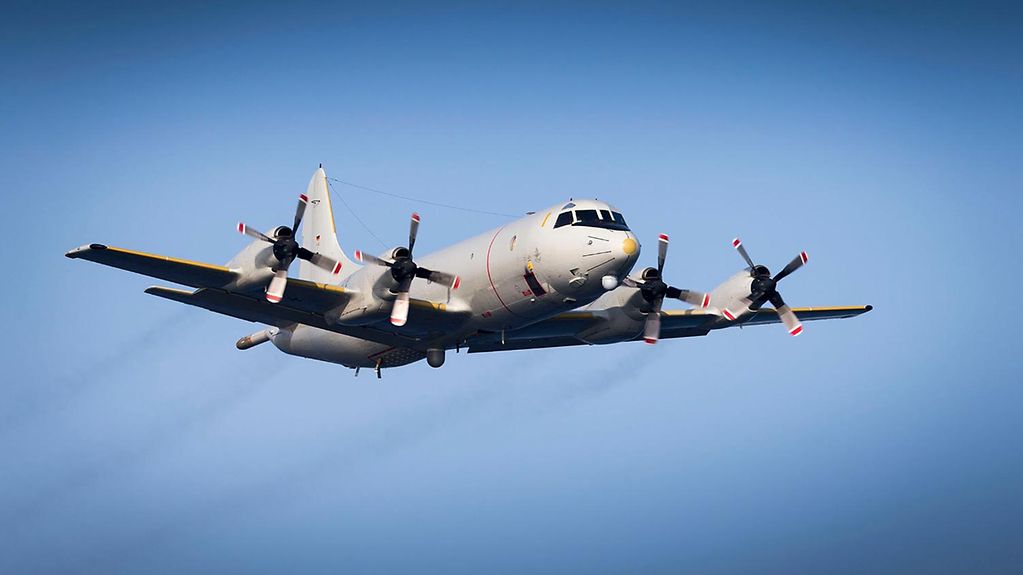Cabinet
Germany will continue its engagement in implementing the United Nations arms embargo on Libya. The mission in the Mediterranean, off the Libyan coast, is to be extended until 30 April 2022. The decision must still be approved by the German Bundestag.
2 min reading time

The Bundeswehr is to continue its support for the EU-led Operation IRINI in the Mediterranean – its contribution includes the P-3C Orion maritime surveillance aircraft.
Photo: Bundeswehr/Koninklijke Luchtmacht/JASPER VEROLME
What did the German government decide?
The German government has decided to continue the engagement of German troops in Operation EUNAVFOR MED IRINI (European Union Naval Force Mediterranean IRINI) until 30 April 2022. Operation IRINI is EU-led.
Up to 300 Bundeswehr troops can be deployed.
What is the mandate of Operation IRINI?
The core task is to help implement the United Nations arms embargo on Libya. It is to investigate violations of the embargo, undertaking maritime monitoring and diverting vessels suspected of breaking the embargo to a port for further action.
Troops are also to prevent illicit exports of petroleum, crude oil and refined petroleum products from Libya, and disrupt the business model of smugglers and traffickers.
To strengthen Libya’s coastguard and navy, soldiers are providing capacity building and training.
Why is the Operation EU-led and why is Germany involved?
Germany’s involvement is part of the common action of the European Union within the framework of the Common Security and Defence Policy (CSDP). It underlines Germany’s ongoing commitment to Europe and also reflects its undertaking to support EU missions within the scope of Permanent Structured Cooperation (PESCO).
The Operation is part of the EU’s broader political approach to support Libya. The German government and its EU partners are supporting the United Nations-led peace process.
Through the Berlin Process, the German government is actively supporting the peace efforts of the United Nations Support Mission in Libya and working for a lasting political solution among the parties to the conflict in Libya.
Are there also civilian initiatives in Libya?
Germany and the European Union support international organisations, in particular the UN Refugee Agency (UNHCR) in its work to provide essentials and appropriate protection for internally displaced persons, refugees and migrants.
The German government is helping to stabilise and rebuild Libya, through its close support for the United Nations Development Programme, reconciliation initiatives and other development and humanitarian assistance programmes.